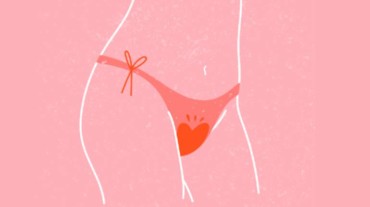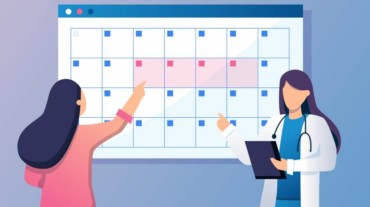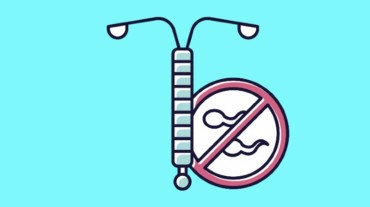Chat with ![]()

Chat with ![]()


You know the feeling when you go for a vacation and forget all about your roz-marla ki problems? I am sure, pregnancy is no vacation, but not getting your periods for nine long months is nothing short of it either, right?
But, just as all good things come to an end, so does your temporary break from Aunty Flo–because when she comes back after pregnancy, it is with a bang! Fortunately or unfortunately, your second innings with menstruation can be quite different. And coping with it can be a bit of a task after being so out of touch for nine blissful months.
Nope, you don’t have to writhe in the painful unpredictability of your first period after pregnancy because with the help of experts, we’ll tell you exactly what to expect from it. So brace yourselves, ladies.
1. Not all the blood down there is period blood
Before we begin the period talk, let’s make one thing clear: The stage right after delivering your baby when your start bleeding isn’t your first period. All that vaginal discharge, mucus, and blood is a part of the lochia stage–where your body is just trying to get rid of the uterine tissue that was once needed to protect the baby.
This discharge will eventually change its course from being dark red to turning pinkish, then brown, and eventually creamy or yellow–until it decides to leave you alone after, say, four to six weeks of delivery.
2. Stubborn Aunty Flo can take her own sweet time to come back
As per a 2011 study published in the journal Obstetrics & Gynecology, it can take around 45 to 94 days (that about six to 13 weeks) for you to start menstruating again.

Dr. Lavleena Nadir, obstetrician-gynecologist at Fortis La Femme, Greater Kailash, Delhi says, “In non-lactating mothers, menstruation returns by the sixth week in 40% cases and by the twelfth week in the remaining 60%.”
In fact, in many cases, the period doesn’t return for up to 6 months, according to Dr Anuradha Kapur, director and head of Institute of Obstetrics and Gynecology at Max Multi-Specialty Centre, Panchsheel Park, Delhi.

Explaining the reason for this delay, Dr Nadir says: “In breastfeeding mothers, periods might not come as long as breastfeeding continues. This is known as lactational amenorrhea, wherein the prolactin hormone (responsible for producing milk) can suppress the reproductive hormones and cause anovulation, a condition where ovulation doesn’t occur for a while.”
3. Lack of periods doesn’t meant that you can have unprotected sex
I am sure reading about an ovulation and suppressed reproductive hormones raised your expectations. But gear up for some disappointment because the absence of your periods should not be mistaken for a limited-period gift voucher of birth control.
A study conducted by the Association of Reproductive Health Professionals found that 1 in a 100 women WILL get pregnant after having unprotected sex even while lactating period. So yes, the chances are meek, but it can happen.
Obviously, non-hormonal birth control methods like copper intrauterine device (IUD) and condoms can be the safest bets–unless of course your doctor advises otherwise.

4. A heavy and irregular flow can be a natural part of Aunt Flo version 2.0
When gestation is over, your first period can be heavier, painful, of irregular duration and intensity, and well—filled with mood swings according to Dr Nadir. Not to mention, a few clots here and there are not a cause of alarm.
When you haven’t bled for so long, what else can you expect? After all, you’ve got to shed off that excessive uterine lining, right? Don’t worry–that hot water bottle and some mild physical activity can come to your rescue.
However, in case of women suffering from endometriosis before pregnancy, a lighter and less intense post-pregnancy period can be expected.
5. Do NOT ignore these warning signs of Aunty Flo’s changed behavior
Sure, your first period after pregnancy will be different than the ones you’ve experienced before. But there are a few alarming signs that you mustn’t ignore.
If your periods are so heavy that you have to rush to the loo to change your pad every 30 minutes or an hour, reach out to your doctor.
“A super-heavy flow, too many clots, severe pain accompanied with fever, and a foul-smelling discharge are signs to look out for,” warns Dr Nadir.
“These could be indicative of an infection or worse—gestational trophoblastic disease, a common post-pregnancy condition in which carcinogenic tumors could grow inside a woman’s womb,” Dr Kapur further explains.
Now that you know all about the return of menstruation in your life after pregnancy, how about you stop worrying and start cherishing life with your baby, eh?